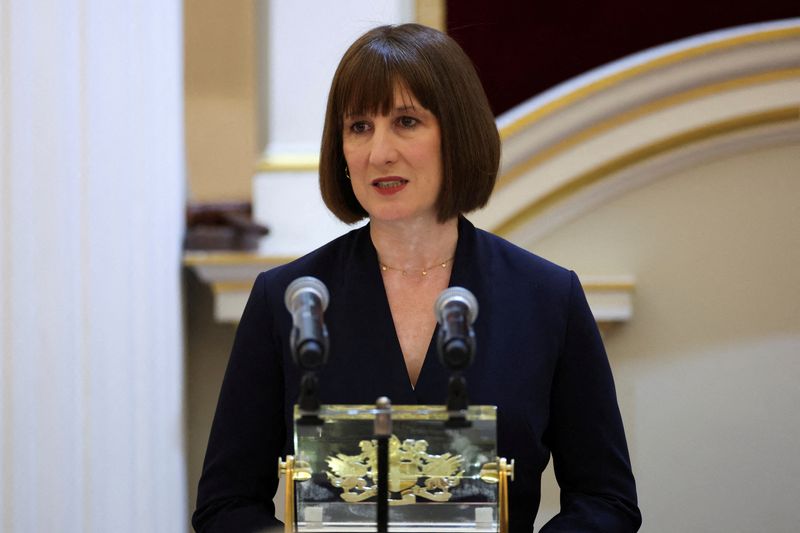CME glitch; U.S. dollar on pace for weekly fall; Tokyo CPI - what’s moving markets
Investing.com -- Britain’s finance chief Rachel Reeves unveiled a sweeping budget on Wednesday that lifts taxes by £26 billion and pushes the overall burden to a record 38% of GDP by the end of the parliament, according to an Office for Budget Responsibility (OBR) forecast that was mistakenly published ahead of her statement.
Get deeper insights on fiscal policy and market reaction by upgrading to InvestingPro - get 55% off today
The early release, which landed minutes before Reeves addressed lawmakers, set the tone for a package shaped by weaker productivity expectations and rising welfare costs.
Reeves confirmed that all personal income tax thresholds will be frozen until 2030–31. The move, expected to raise £8.3 billion a year, is the largest single measure in the budget.
The U.K. equity index FTSE 100 slipped 0.13% by 12:54 GMT following the announcement, while sterling firmed about 0.2% to 1.318 against the dollar.
The new package more than offsets £11.3 billion in extra spending and significantly expands Reeves’ fiscal buffer, the OBR document showed. The chancellor is now projected to have £22 billion in headroom, compared with £9.9 billion in March, a jump she hopes will bolster investor confidence.
The second-largest measure is a clampdown on salary-sacrifice pension contributions that will generate £4.7 billion.
Reeves also detailed a set of narrower steps, including new charges on electric cars expected to raise £1.4 billion, gambling-duty reforms worth £1.1 billion, and a council-tax surcharge on homes valued above £2 million.
The levy, starting in April 2028, will apply annually across four price bands, from £2,500 for lower-value £2–2.5 million properties to £7,500 for those worth £5 million or more.
Dividend taxes will also rise. From April 2026, the basic and higher rates will increase by two percentage points, to 10.75% and 35.75%, generating about £1.2 billion annually from 2027.
Reeves said higher taxes are necessary partly because of downgraded productivity forecasts and her decision to move ahead with a £3 billion plan to scrap the two-child benefit cap.
Last year, Reeves unveiled a fiscal package that delivered £40 billion in tax rises and roughly £70 billion in new spending aimed at “fixing the foundations” of the economy. But growth remains subdued, inflation is still the highest in the G7 and unemployment among younger workers continues to rise, leaving Reeves under pressure to present a credible path back to fiscal stability.
Economists argued that revenue must materialise quickly to restore confidence. “For the government to retain fiscal credibility it must deliver a material reduction in the fiscal deficit over the next two years,” Andrew Wishart, an economist at Berenberg, said earlier.
Labour MPs, meanwhile, have pushed for costly policy reversals — including the end of the two-child benefit cap — adding to the tension behind Reeves’ decisions.
In comments released ahead of her statement, Reeves told parliament she would support households, ease hospital backlogs and work toward lowering public debt, insisting she would not return to austerity or pursue “reckless borrowing.”
